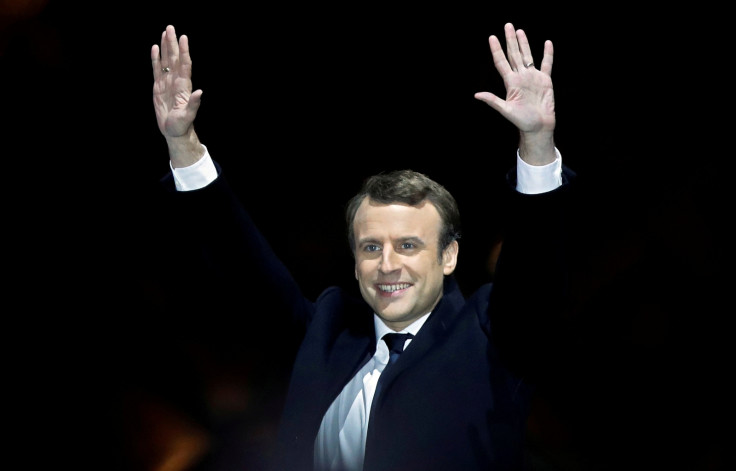Macron poses no threat to Brexit – but he might damage the EU
The French president Emmanuel Macron is a protectionist when it comes to the EU.

OK, so what about Britain? Every commentator has recycled the same lines about Emmanuel Macron as France's president: he's young; he's untested; he might not have a majority; he won't be able to be all things to all men; he's a breath of fresh air.
But, just to be parochial for a moment, what does his election mean for us as we begin our disengagement talks with the EU?
Had I been French, I would have voted for Macron faute de mieux. Whatever his disqualifications, he would not have plunged the country into an immediate economic crisis, as his ranty rival, Marine Le Pen, would have done. Still, I have my doubts about him.
My doubts, though, are very different from those of most British commentators.
For most of the past 44 years, a great deal of our diplomatic energy has been expended in trying to slow the political amalgamation of the EU. As long as we were members, this made sense: we wanted to preserve our independence. Now, though, it ceases to be any of our business. If the EU wants to become a single bloc, rather than a looser association, good luck to it. Our chief interest is in having a prosperous and stable neighbour.
The victory of an unambiguous Europhile – one of the few politicians anywhere who still campaigns in front of the EU's 12-star flag – may settle nerves in Brussels. EU negotiators keep repeating that the unity of the 27 and the future of the project are of paramount importance to them. Well, fine. Why is that goal antithetical to our own interests? We should aim to be what Winston Churchill proposed in Zurich in 1946: a friend and sponsor of the united Europe on our doorstep rather than a member.
That vision may not be so far off Macron's. He has spoken of having a new relationship with Britain after we leave, which preserves many aspects of co-operation including – most critically in his view – the military alliance. Unlike several of his presidential rivals, Macron is uncomplicatedly anti-Putin. He dislikes autocracy in any form (he once said that the murder of King Louis following the Revolution had indirectly given rise to France's frequent flirtations with strongmen, whether in the form of Bonapartism, Boulangism or Gaullism). He was wary of Russia even before his campaign was subjected to cyber-attack. In this regard, he is likely to see eye-to-eye with Theresa May.
His European adviser, Jean Pisani-Ferry, recently co-authored an eminently sensible response to Brexit for the Bruegel Institute in Brussels, calling for a "Continental partnership" that would, in essence, preserve most of the market arrangements while excluding Britain from political structures. Pisany-Ferry now says that that paper was written "in a previous life, in a different capacity. No hint to Macron's views".
Still, there is no reason why a committed Euro-integrationist, which Macron is, should not see a strategic partnership with the UK, which keeps political union intact for the other participants, as solving several problems.
No, my concerns about Macron are different. Although he is often written up as a free-market liberal, he is in fact quite a protectionist; it's just that his protectionism is European rather than French in its scope. His manifesto promised to "turn the protection of European industry into one of the major pillars of reinventing the EU". He wants to restrict EU public procurement to companies based in Europe, and is a big fan of "anti-dumping" measures – usually the first resort of the contemporary anti-globaliser.
Such policies would, if implemented, cause peripheral damage to Britain, in the sense that a "Buy Europe" rule would exclude some of our firms. But by far the greater damage would be to the EU itself. That is always the way with protectionism. The harm to the country applying the restrictions is greater than the incidental harm to its trading partners.
France is our fifth largest trading partner. Its prosperity matters to us. Forty years have passed since the French state last ran a balanced budget. Despite repeated promises, no French government has seriously tackled the structural problems that prevent young people from finding jobs and cause more days to be lost in strikes than anywhere else. Euro-protectionism would exacerbate those problems.
Every friend of France should wish Macron success in carrying out a proper overhaul. Every friend of France should hope that his economic nationalism was purely for electoral purposes. If Macron is serious about making markets work in the land of Frédéric Bastiat, the task will consume almost all his energies, making the Brexit talks a sideshow.
Daniel Hannan has been Conservative MEP for the South East of England since 1999, and is Secretary-General of the Alliance of European Conservatives and Reformists.
© Copyright IBTimes 2025. All rights reserved.






















